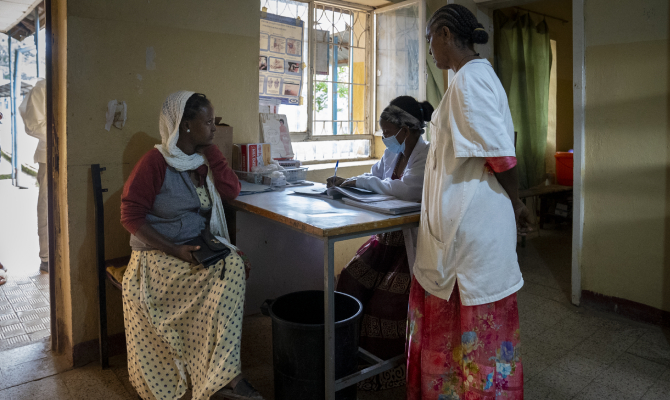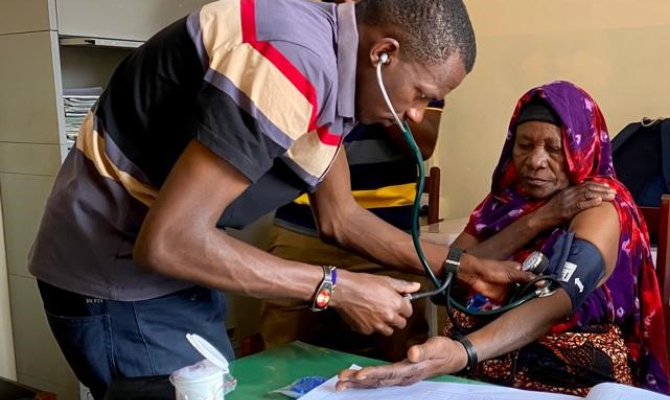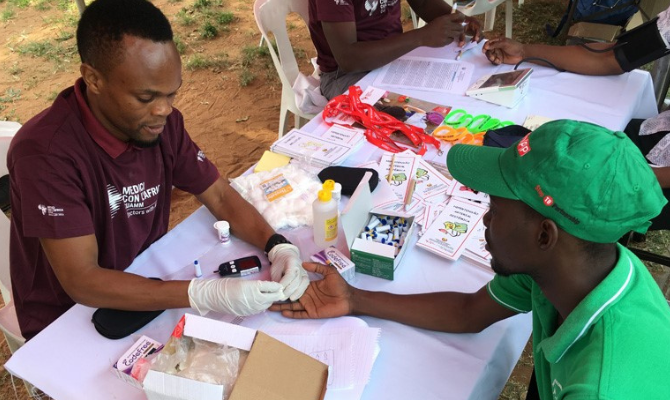The burden of non-communicable diseases (NCDs) in sub-Saharan African countries is rapidly increasing, with diabetes showing a spiking prevalence. In Ethiopia, there are more than 1.7 million people with diabetes, making it one of the four African countries with the largest number of patients living with diabetes mellitus (DM). DM and Cardiovascular disease accounts for 18% of the total deaths in Ethiopia.
“Improving diabetes and hypertension prevention and access to care” is the project launched in 2018 by CUAMM to improve the quality of Type I DM treatment and care services provided at primary, secondary and tertiary-level facilities in Ethiopia. The commitment has continued ever since thanks to the partnership with the Ethiopian Diabetes Association (EDA) and Federal Ministry of Health (FMoH) and the continuos support from World Diabetes Foundation.
In a workshop held in Addis Ababa, CUAMM gathered with partners and national stakeholder to give account of a three-years long commitment to respond to NCDs in Ethiopia.
«I encourage you all to keep up the commitment of these years and retain the lessons learnt. By doing so, your daily work, and especially the patients you care for, will benefit from this journey we have made together in responding to non-communicable diseases» said Mr Addisu Worku – Ministry of Health’s Head of NCDs and Mental Health, addressing the participants, health workers and practitioners from the 34 supported facilities.
Over the past three years, the intervention has showed remarkable results. Activities have been implemented in 34 hospitals in 11 regions and 2 City Administrations of Ethiopia. The hospitals were selected against the number of Type I DM patients receiving treatment and care in the hospitals and efforts were made to equitably determine the number of hospitals to be included in each of the regions. Training of healthcare workers and improvement of monitoring and evaluation activities of Type I DM treatment and care services in the project-supported health facilities were the core of the project.
As a result: 305 healthcare workers including 101 doctors and 204 nurses have been trained; 3 rounds of medical supplies have been distributed to 34 project-supported faicilities; 59 rounds of mentorship activity and 57 rounds of supportive supervision have been conducted; 5 review meetings have been funded.
To date, lack of testing and diagnosis equipment, inadequate number of qualified healthcare personnel, poor access to healthcare facilities and poor awareness about diabetes are obstacles to diagnosis in the Africa region. Only 46% of people living with diabetes in the African region know their status, raising the risk of severe illness and death, potentially worsening the situation in the region which already has the world’s highest mortality rates due to the disease. According to the WHO, 24 million adults in Africa are living with diabetes. This figure is expected to increase by 129% to 55 million by 2045 (WHO, 2022).
With the support of World Diabetes Foundation, Doctors with Africa CUAMM is committed to make NCDs services accessible to all in by promoting quality and accessibility of services up to the hardest-to-reach areas.





